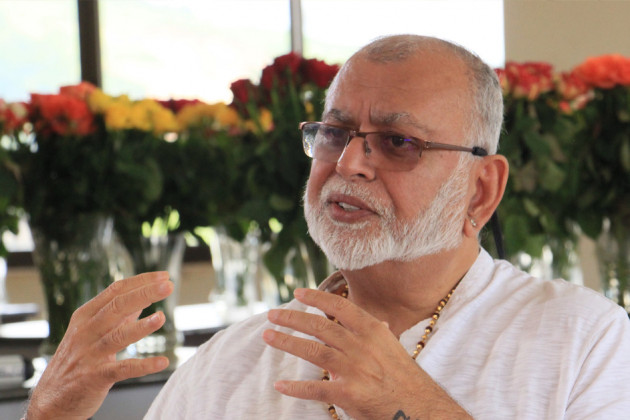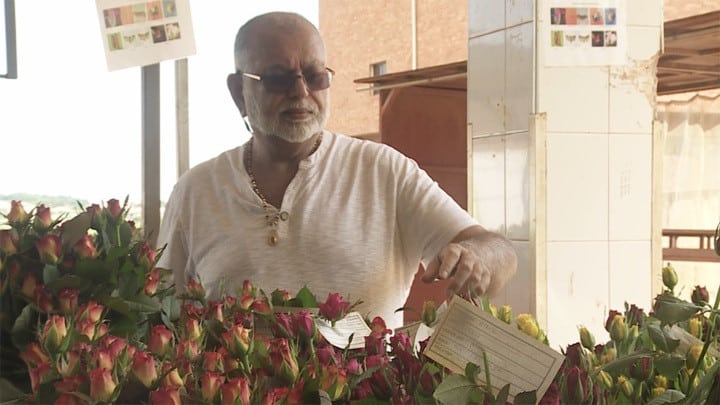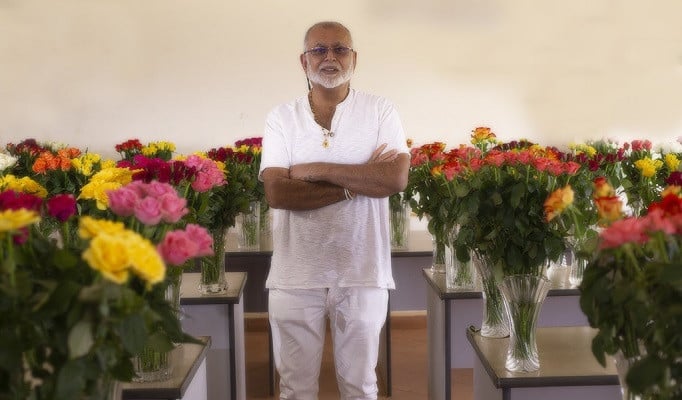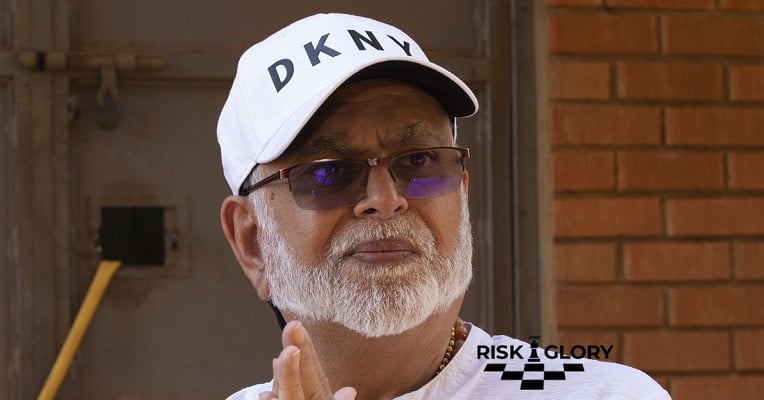I hope I will be able to do justice to this great privilege and honour. I am also hoping that my experience will, not only resonate with other successful business people in Africa, but more importantly it will also provide inspiration to some of the budding entrepreneurs to become billionaires through investing in Africa.
Although Meera Investments Limited, the property development arm of the Ruparelia Group was formally registered in 1994, the Chairman and Founder of the giant Ruparelia Group started investing in property in 1986.
Today Sudhir has over 400 office, retail, industrial and residential properties in Uganda. His properties cater to an estimated footfall of 150,000 people per day- just about 10% of Kampala’s daytime population. Meera Investments is also one of the most compliant and largest taxpayers in the country. Yesterday the businessman appeared at the Uganda Revenue Authority (URA) organised e-Bomba Ya Business Summit to talk about how to build a solid real estate business.
In a recent interview with BillionaireTomorrow, Sudhir shared his insights on what rightful investments means for the upcoming entrepreneurs in Africa. Below is a script of the interview with Chris Bishop.
At the outset, I wish to dispel a common myth and perception that success in Africa is entirely dependent upon good luck and fortune and who you know rather than what you know. This is far from reality in my own experience.
Of course, like everywhere else in the world and not only in business but in other endeavours, such as in sports or as an artist, you need luck to achieve success, but you also have to create your own luck through hard work and perseverance. It may come as surprise to many that I work between twelve to fourteen hours a day, quite often, including weekends!!
I sincerely believe that Africa still offers a lot of lucrative and exciting business opportunities. There are challenges as well, perhaps and as expected greater than what you might experience in the developed or industrialised world. However, if one is willing to take a calculated risk, be committed, determined and ready to persevere with a decent dose of patience then the returns are also pretty handsome compared to the developed world. I want to emphasise, at this juncture, that you do need patience and so please do not expect to double your investment in a year or so. You can achieve higher returns and your investment can double faster than in Europe or America, but you need to give it time.

Having made the general comments above, let me give a little background about myself and share some of the successes in various business ventures and an insight into why and how these were achieved.
I was born in Uganda in 1956 but in 1972, together with my parents, we had to relocate to the United Kingdom, following the expulsion of Asians by the then President Idi Amin.
As a teenage refugee in London, at the tender age of 16, I once had to sleep on Ilford High Street, in Essex, London in severely freezing conditions. This was enough to inspire me to take up a job in a London bakery, where I had to pick hot doughnuts out of the fryer and inject jam into them whilst they were still hot; even the red burning hands did not stop me from returning to work the next day.
I also started driving a taxi in the evenings and at night. So, working two to three jobs, I had saved enough to buy my first house in London at the age of 20. However, Africa is in my blood and hence in 1985, I returned to Kampala with just $25,000, which I started investing with my wife Jyotsna in several greenfield ventures. Initially in a trading business, importing and selling products such as beer, salt and whatever I felt had a good demand or was in short supply.
This trading led me into the forex business and in my humble opinion this business thrived due to my integrity, which created confidence within my clientele. They knew that they could entrust me with their funds and these would get transferred to virtually anywhere in the world in the shortest time possible.

I learnt that it is crucial to never let your customers down, whatever challenges you may encounter – as they say, the customer is king and if we treat them as kings, you gain their loyalty for years. So, many of my customers from those days are still my clients and or business associates. Some are my tenants; some my suppliers; some are also borrowers. Forging such long-term relationships is one of the major criteria for success in business.
The success in the forex and trading business allowed me to build sufficient capital to start investing in real estate. I had the confidence, despite many doubters at the time, including international media, in the future of Uganda. Hence my objective was and has always been to continue investing in the Ugandan economy rather than exporting the profits generated to the developed world. Had I behaved like a short-term investor, without the conviction and belief in the prospects and opportunities in Uganda, I would have never been able to build the business empire I have now created.
That is not to say that it has been plain sailing for me, not at all. I have also encountered several setbacks, including relying on a forged land title amongst the first property transaction I carried out. However, I treated these setbacks as learning experiences, some of which were quite expensive lessons!! But to achieve success as an entrepreneur anywhere, including in Africa, you need drive, perseverance, commitment, determination, vision and patience too.
I continued to invest the cashflow generated from my businesses instead of resorting to borrowing, mainly in the service sectors such as financial services, hospitality, education, commercial and residential real estate development.
I had set myself benchmark that I would invest in a business or property that would have a payback period of five years or less. I would only invest in a venture that had a longer payback period, if the venture had other attractive spin offs, such as a new sector like rose farming or agriculture. These are sectors in which Uganda has competitive advantages.
I do not intend to enumerate all the different business ventures in which my family and I have interest in as these can easily be accessed from various social media platforms. I feel that the readers will benefit more from the outline of some specific challenges one encounters in Africa and how we have overcome the same.
In no particular order, one should be mindful of the following challenges;
- There is limited infrastructure such as roads and internal rail transport which can create logistical challenges with the consequence of increased cost of doing business. This is now not so acute as when I first started investing here in Uganda as the current NRM Government in promoting private sector growth is prioritising infrastructure development in roads, railways, communication and energy.
- There is a lack of skilled and trustworthy workforce. Hence, one may have to rely on expatriate labour and this again adds to cost of operating, as expatriate labour is more expensive and the immigration cost are also increasing. This at times can create inefficiencies, so one needs to pay attention to recruiting the best people around. We have always ensured that we recruit the best both from within Uganda as well as from abroad for certain specific categories. In order to overcome this specific challenge, we have also created very sound internal controls and a very robust and stringent administration systems.
- In Uganda, the interest rates on bank borrowing are very high, mainly as a result of the high percentage of non-performing loans that the banks suffer as well as due to public sector borrowing requirements which push up the interest rates on Government securities. Accordingly, if one is to rely on raising bank funding to fund the investments, then the high borrowing costs have to be taken into account. In most businesses, the margins are adequate to cover the high interest rates, provided, of course, that the gearing is within manageable and acceptable level.
- It would be remiss of me, if I do not mention the incidence of bribery and corruption. One can say that this vice is prevalent in all sectors and some businessman even consider this as an opportunity! We do not condone this practice and that is another reason why we have strong controls and administration systems.
In my view, the above are common challenges that one is likely to encounter in any developing country. It is then a question for each investor to stack these against the opportunities and rewards available and seek appropriate advice from professionals and fellow business people.

One other key ingredient in our success I believe is our philosophy of continuous investment in the businesses/ projects undertaken. We never acquire a building, business or project and let it run in the same condition we found it in. We have made major improvements to all our buildings, be they schools, hotels, apartments, shopping malls, rose farms – you name it. In my view this also enhances confidence of all your stakeholders, customers, employees, suppliers and Government as well.
In conclusion, I would like to emphasise that Africa is a continent of opportunities, where the middle class is growing and most governments are promoting private sector led growth, an enabling environment, through investment in infrastructure, as well providing an appropriate policy framework -but please do not expect overnight returns!
If you would like your article/opinion to be published on Uganda’s most authoritative news platform, send your submission on: [email protected]. You can also follow DailyExpress on WhatsApp and on Twitter (X) for realtime updates.



